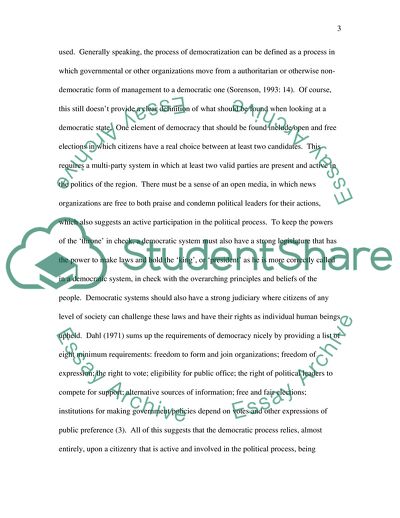Cite this document
(Democratization in Egypt Coursework Example | Topics and Well Written Essays - 2250 words, n.d.)
Democratization in Egypt Coursework Example | Topics and Well Written Essays - 2250 words. Retrieved from https://studentshare.org/politics/1716739-democratization-in-egypt
Democratization in Egypt Coursework Example | Topics and Well Written Essays - 2250 words. Retrieved from https://studentshare.org/politics/1716739-democratization-in-egypt
(Democratization in Egypt Coursework Example | Topics and Well Written Essays - 2250 Words)
Democratization in Egypt Coursework Example | Topics and Well Written Essays - 2250 Words. https://studentshare.org/politics/1716739-democratization-in-egypt.
Democratization in Egypt Coursework Example | Topics and Well Written Essays - 2250 Words. https://studentshare.org/politics/1716739-democratization-in-egypt.
“Democratization in Egypt Coursework Example | Topics and Well Written Essays - 2250 Words”. https://studentshare.org/politics/1716739-democratization-in-egypt.


